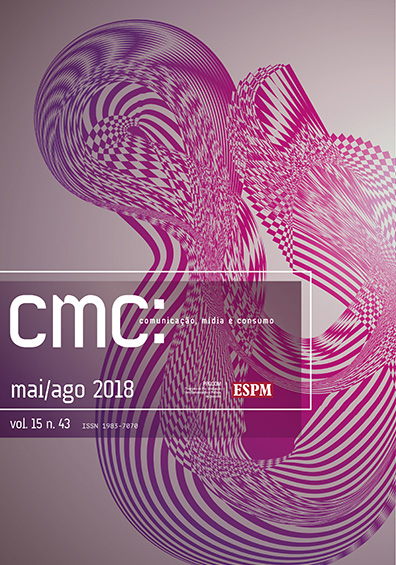Does Mode Matter? Measuring the Effects of Different Types of Online Political Engagement on Offline Participation
DOI:
https://doi.org/10.18568/cmc.v15i43.1616Resumo
Recent studies have shown that online participation is a multi-dimensional phenomenon that replicates and extends existing forms of political engagement. What is less clear is the mobilizing potential of these different types of activity and particularly whether they trigger offline participation. This paper addresses these questions in an analysis of citizens online and offline behaviour in the context of a UK General Election. Specifically we identify three different modes of online engagement in the campaign, profile the individuals most likely to engage in them, and examine whether they affected individuals’ likelihood of voting. Our findings show that while newer social media based ‘e-expressive’ activities are most likely to appeal to those individuals who are not already engaged in politics they do not necessarily increase the likelihood of voting. By contrast higher consumption of news and information online during an election does appear to significantly boost individuals’ chances of turning out to vote.
Downloads
Referências
BAKKER, T. P.; DE VREESE, C. H. “Good news for the future? Young people, internet use, and political participation”, Communication Research, v. 38, n. 4, p. 451-470, 2011.
BARNES, S. H.; KAASE, M. et al. Political Action: mass participation in five western democracies. Beverly Hills: Sage Publications, 1979.
BENNETT, W. L. Communicating Global Activism: Strengths and Vulnerabilities of Networked Politics. Information, Communication & Society, v. 6, n. 2, p. 143-68, 2003.
BEST, S. J.; KRUEGER, B. S. Analyzing the Representativeness of Internet Political Participation. Political Behavior, v. 27, n. 2, p. 183-216, 2005.
BIMBER, B.; COPELAND, L. Digital media and traditional participation over time in the US. Journal of Information, Technology & Politics, v. 10, n. 2, p. 125-137, 2013.
BIMBER, B.; FLANIGAN, A.; STOHL, C. Reconceptualizing Collective Action in the Contemporary Media Environment. Communication Theory, v. 15, n. 4, p. 365-388, 2005.
BIMBER, B. Information and american democracy. Cambridge: Cambridge University Press, 2003.
BIMBER, B. Information and political engagement in America: The search for effects of information technology at the individual level. Political Research Quarterly, n. 54, p. 53-67, 2001.
BIMBER, B. The Internet and citizen communication with government: does the medium matter? Political Communication, v. 16, n. 4, p. 409-428, 1999.
BLAIS, A. To vote or not to vote: the merits and limits of rational choice theory. Pittsburgh: University of Pittsburgh Press, 2000.
BLUMLER, J. G.; KATZ, E.; BLUMLER, J. G. The uses of mass communications: current perspectives on gratifications research (Vol. 3). Beverly Hills, CA: Sage publications, 1974.
BONFADELLI, H. The Internet and Knowledge Gaps. A theoretical and empirical investigation. European Journal of Communication, v. 17, n. 1, p. 65-84, 2002.
BOULIANNE, S. Social media use and participation: a meta-analysis of current research. Information, Communication & Society, v. 18, n. 5, p. 524-538, 2015.
BOULIANNE, S. Stimulating or reinforcing political interest: using panel data to examine reciprocal effects between news media and political interest. Political Communication, v. 28, n. 2, p. 147-162, 2011.
BOULIANNE, S. Does Internet use affect engagement?: a meta-analysis of research. Political Communication, v. 26, n. 2, p. 193-211, 2009.
CUTTS, D.; FORD, R.; GOODWIN, M. J. Anti-immigrant, politically disaffected or still racist after all? Examining the attitudinal drivers of extreme right support in Britain in the 2009 European election. European Journal of Political Research, v. 50, n. 3, p. 418-40, 2011.
DALTON, R. Democratic challenges, democratic choices: the erosion of political support in advanced liberal democracies Oxford: Oxford University Press, 2004.
DALTON, R. Citizen Politics. Public opinion and political parties in advanced industrial democracies. NY-London: Chatham House Publishers, 2002.
DAVIS, R. The web of politics. The Internet's Impact on the American Political System. New York: Oxford University Press, 1999.
FIELDHOUSE, E.; D. CUTTS. Does diversity damage social capital? A comparative study of neighbourhood diversity and social capital in the US and Britain. Canadian Journal of Political Science-Revue Canadienne de Science Politique, v. 43, n. 2, p. 289-318, 2010.
GIBSON, R.; CANTIJOCH, M. Conceptualizing and measuring participation in the age of the internet: is online political engagement really different to offline? Journal of Politics, v. 75, n. 3, p. 701-716, 2013.
GIL DE ZÚÑIGA, H.; JUNG, N.; VALENZUELA, S. Social media use for news and individuals' social capital, civic engagement and political participation. Journal of Computer‐Mediated Communication, v. 17, n. 3, p. 319-336, 2012.
GIL DE ZÚÑIGA, H.; VEENSTRA, A.; VRAGA, E.; SHAH, D. Digital democracy: reimagining pathways to political participation. Journal of Information, Technology & Politics, v. 7, n. 1, p. 36-51, 2010.
GUEORGUIEVA, V. Voters, MySpace and YouTube: the impact of alternative communication channels on the 2006 election cycle and beyond. Social Science Computer Review, v. 26, n. 3, p. 288-300, 2007.
HAMILTON, A.; TOLBERT, C. J. Political engagement and the Internet in the 2008 US presidential elections. In: ANDUIZA, E.; JENSEN, M. J.; JORBA, L. Digital media and political engagement worldwide: a comparative study. Cambridge: Cambridge University Press: 2012. p. 56-79.
HARDY, B. W.; SCHEUFELE, D. A. Examining differential gains from internet use: comparing the moderating role of talk and online interactions. Journal of Communication, v. 55, n. 1, p. 71-84, 2005.
HILL, K. A.; HUGHES, J. E. Cyberpolitics: citizen activism in the age of the Internet. Lanham.: Rowman & Littlefield, 1998.
HIRZALLA, F.; VAN ZOONEN, L. Beyond the online/offline divide: Convergences of online and offline civic activities among youth. Social Science Computer Review, v. 29, n. 4, p. 481-494, 2011.
HU, L.; BENTLER, P. M. Cutoff Criteria for fit indexes in covariance structure analysis: conventional criteria versus new alternatives. Structural Equation Modeling, v. 6, n. 1, p. 1–55, 1999.
JOHNSON, T.; KAYE, B. A boost or bust for democracy? How the web influences political attitudes and behaviors in the 1996 and 2000 presidential elections. Press/Politics, n. 8, p. 9-34, 2003.
JÖRESKOG, K. J.; GOLDBERGER, A. S. Estimation of a model with multiple indicators and multiple causes of a single latent variable. Journal of the American Statistical Association, v. 70, n. 351, p. 631-639, 1975.
JÖRESKOG, K. G. A general method for estimating a linear structural equation system. In: GOLDBERGER, A. S.; DUNCAN, O. D. (Orgs.). Structural equation models in the social sciences. New York: Seminar Press, 1973. p. 85-112.
KRAUT, R.; KIESLER, S.; MUKHOPADHYAY, T.; SCHERLIS, W.; PATTERSON, M. Social impact of the Internet. What does it mean? Communications of the ACM, v. 41, n. 12, p. 21-22, 1998.
LEUNG, L. User-generated content on the internet: an examination of gratifications, civic engagement and psychological empowerment. New Media & Society, v. 11, n. 8, p. 1327-1347, 2009.
LITTLE, R. J. A.; RUBIN, D. B. Statistical analysis with missing data. New York: Wiley-Interscience, 1987.
MOSSBERGER, K.; TOLBERT, C.; NCNEAL, R. Digital citizenship. The internet, society, and participation. Cambridge: The MIT Press, 2008.
MOY, P.; MANOSEVITCH, E.; STAMM, K.; DUNSMORE, K. Linking dimensions of Internet use and civic engagement. Journalism and Mass Communication Quarterly, v. 82, n. 3, p. 571-586, 2005.
MUTHÉN, L. K.; MUTHÉN, B. O. Mplus user’s guide. Los Angeles: Muthén & Muthén, 2005.
NIE, N. Sociability, interpersonal relations and the Internet. American Behavioral Scientist, n. 45, p. 420-435, 2001.
NORRIS, P. Critical citizens: global support for democratic government. Oxford: Oxford University Press, 1999.
NORRIS, P. Digital divide: civic engagement, information poverty, and the Internet. Cambridge: Cambridge University Press, 2001.
NORRIS, P. Democratic phoenix: reinventing political activism. Cambridge: Cambridge University Press, 2002.
PARRY, G.; MOYSER, G.; DAY, N. Political participation and democracy in Britain. Cambridge: Cambridge University Press, 1992.
PATTIE, C.; SEYD, P.; WHITELEY, P. Citizenship in Britain: values, participation & democracy. Cambridge: Cambridge University Press, 2004.
QUINTELIER, E.; VISSERS, S. The effect of Internet use on political participation: an analysis of survey results for 16 years old in Belgium. Social Science Computer Review, v. 28, n. 4, p. 411-427, 2008.
RAINIE, L.; SMITH, A.; SCHLOZMAN, K. L.; BRADY, H.; VERBA, S. Social media and political engagement. Pew Internet & American Life Project, 2012.
RHEINGOLD, H. Smart mos: the next social revolution. Cambridge: Basic Books, 2002.
RIKER, W. H.; ORDERSHOOK, P. C. An introduction to positive political theory. Prentice-Hall: Englewood Cliffs, 1973.
ROJAS, H.; PUIG-I-ABRIL, E. Mobilizers mobilized: information, expression, mobilization and participation in the digital age. Journal of Computer-Mediated Communication, v. 14, n. 4, p. 902-927, 2009.
SAGLIE, J.; VABO, S. I. Size and e-democracy: online participation in Norwegian local politics. Scandinavian Political Studies, v. 32, n. 4, p. 382-401, 2009.
STOKER, G. Why politics matters. Basingstoke: Palgrave, 2006.
SYLVESTER, D. E.; MCGLYNN, A. J. The digital divide, political participation, and place. Social Science Computer Review, v. 28, n. 1, p. 64-74, 2010.
TEORELL, J.; TORCAL, M.; MONTERO, J. R. Political participation: mapping the terrain. In: VAN DETH, J. W.; MONTERO, J. R.; WESTHOLM, A. (Orgs.). Citizenship and involvement in European democracies: a comparative analysis. London: Routledge: 2007. p. 334-357.
VACCARI, C. Digital politics in western democracies: a comparative study. Baltimore: Johns Hopkins University Press, 2013.
VERBA, S.; SCHLOZMAN, K. L.; BRADY, H. E. Voice and equality: civic voluntarism in American politics. Cambridge: Harvard University Press, 1995.
VERBA, S.; NIE, N. H. Participation in America: political democracy and social equality. New York: Harper & Row, 1972.
VERBA, S.; NIE, N. H.; KIM, J. Participation and political equality: a seven-nation comparison. Cambridge: Cambridge University Press, 1978.
WILHELM, A. G. Democracy in the digital age: challenges to political life in cyberspace. New York: Routledge, 2000.
WHITELY, P. F.; SEYD, P. Rationality and party activism: encompassing tests of alternative models of political participation. European Journal of Political Research, v. 29, n. 2, p. 215-234, 1996.
XENOS, M.; MOY, P. Direct and differential effects of the Internet on political and civic engagement. Journal of Communication, v. 57, n. 4, p. 704–718, 2007.
ZMERLI, S.; NEWTON, K.; MONTERO, J. R. Trust in people, confidence in political institutions, and satisfaction with democracy. In: VAN DETH, M. J. R.; WESTHOLM, A. (Orgs.). Citizenship and involvement in European Democracies: a comparative analysis. London: Routledge, 2007. p. 35-65.
ZUMBO, B. D. Structural equation modelling and test validation. Encyclopedia of Statistics in Behavioral Science, 2005.







